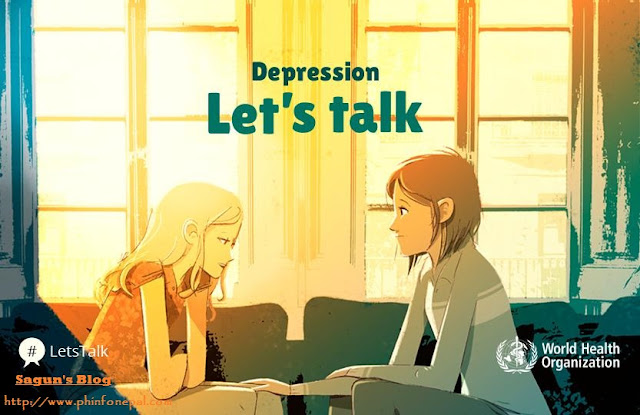World Health Day, celebrated on 7 April every year to mark the anniversary of the founding of the World Health Organization, provides us with a unique opportunity to mobilize action around a specific health topic of concern to people all over the world.
- Depression is a common mental disorder that affects people of all ages, from all walks of life, in all countries.
- The risk of becoming depressed is increased by poverty, unemployment, life events such as the death of a loved one or a relationship break-up, physical illness and problems caused by alcohol and drug use.
- Depression causes mental anguish and can impact on people’s ability to carry out even the simplest everyday tasks, with sometimes devastating consequences for relationships with family and friends.
- Untreated depression can prevent people from working and participating in family and community life.
- At worst, depression can lead to suicide.
- Depression can be effectively prevented and treated. Treatment usually involves either a talking therapy or antidepressant medication or a combination of these.
- Overcoming the stigma often associated with depression will lead to more people getting help.
- Talking with people you trust can be a first step towards recovery from depression.
- Depression is a common mental disorder. Globally, more than 300 million people of all ages suffer from depression.
- Depression is the leading cause of disability worldwide, and is a major contributor to the overall global burden of disease.
- More women are affected by depression than men.
- At its worst, depression can lead to suicide.
- There are effective treatments for depression.
Related: Standard Treatment Protocol (STP) for Mental Health Services into the Primary Health Care System
Depression: let’s talk – 7 April 2017 | World Health Day



